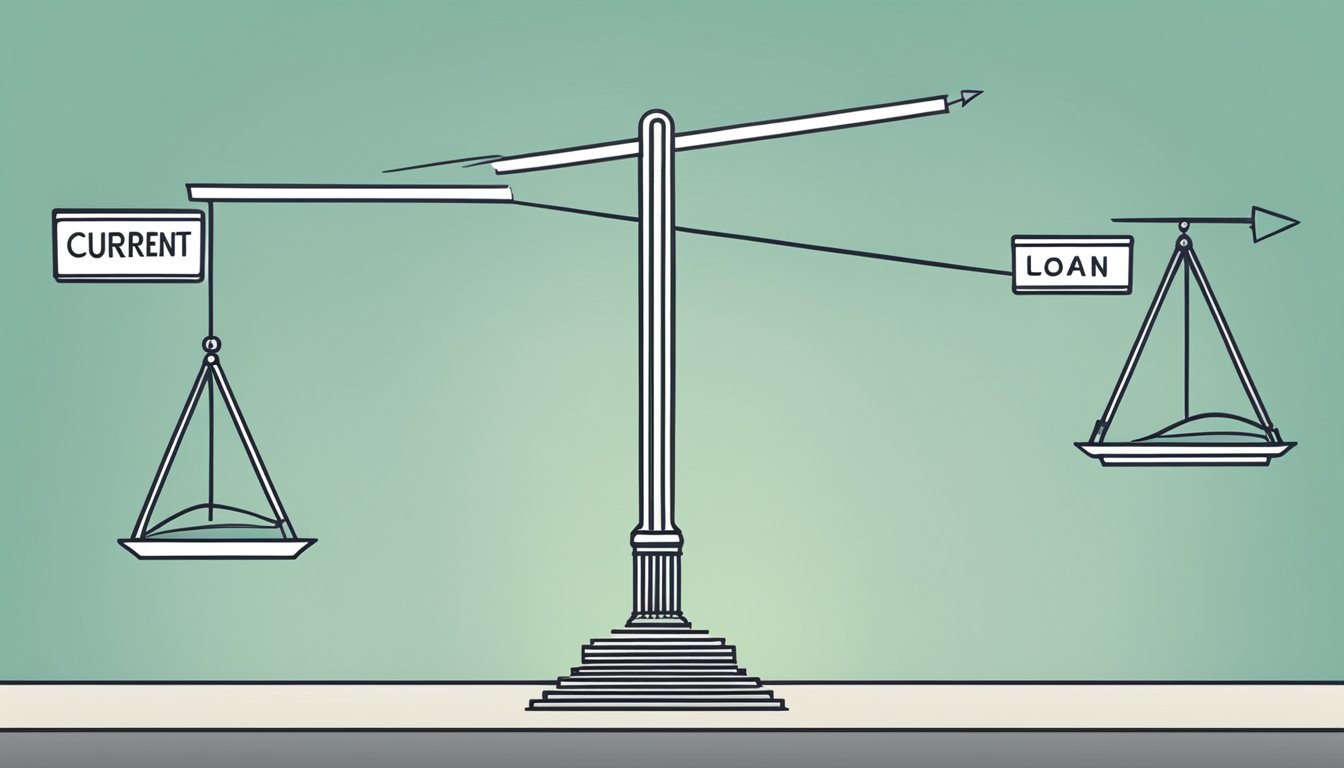If you have a personal loan and are struggling with the high-interest rate, a balance transfer may be the solution for you. A personal loan balance transfer allows you to transfer your outstanding balance from one lender to another to take advantage of a lower interest rate. This can help you save money on interest payments and pay off your debt faster.

To qualify for a personal loan balance transfer, you will need to have a good credit score. The lender will also consider your debt-to-income ratio and other factors to determine your eligibility. If you are approved, you will need to complete an application and provide documentation to transfer your balance to the new lender.
Before applying for a personal loan balance transfer, it’s important to understand the process, eligibility requirements, and potential fees. This will help you make an informed decision and choose the best option for your financial situation. Keep reading to learn more about personal loan balance transfers and how they can help you save money and pay off your debt faster.
Key Takeaways
- A personal loan balance transfer can help you save money on interest payments and pay off your debt faster.
- To qualify for a personal loan balance transfer, you will need to have a good credit score and meet other eligibility requirements.
- Before applying for a personal loan balance transfer, it’s important to understand the process, eligibility requirements, and potential fees.
Understanding Balance Transfer

If you have a personal loan with a high-interest rate, a balance transfer may be a good option for you. By transferring your personal loan balance to a new credit card or loan with a lower interest rate, you can save money on interest charges and pay off your debt faster.
What Is a Balance Transfer?
A balance transfer is the process of moving debt from one credit card or loan to another. This is typically done to take advantage of a lower interest rate or to consolidate debt into one payment. Balance transfers are commonly used for credit card debt, but can also be used for personal loans.
How Balance Transfers Work
When you transfer a personal loan balance, you will need to apply for a new credit card or loan with a lower interest rate. Once approved, you will use the new credit card or loan to pay off your existing personal loan. This will leave you with a new debt at a lower interest rate.
It’s important to note that most balance transfers come with a balance transfer fee, which is typically around 3% of the total amount transferred. However, some credit cards offer 0% interest on balance transfers for a limited time, which can save you a significant amount of money on interest charges.
Benefits of Transferring a Personal Loan Balance
There are several benefits to transferring a personal loan balance:
- Lower interest rates: By transferring your personal loan balance to a new credit card or loan with a lower interest rate, you can save money on interest charges and pay off your debt faster.
- Debt consolidation: If you have multiple debts, a balance transfer can help you consolidate them into one payment.
- 0% interest: Some credit cards offer 0% interest on balance transfers for a limited time, which can save you a significant amount of money on interest charges.
- Lower monthly payments: By reducing your interest rate, you can lower your monthly payments and free up cash flow.
Overall, a balance transfer can be a great way to save money on interest charges and pay off your personal loan debt faster. However, it’s important to do your research and compare interest rates and balance transfer fees before making a decision.
Eligibility and Application Process

If you are considering a personal loan balance transfer in Singapore, there are certain eligibility requirements that you need to meet to qualify. In this section, we will discuss who can apply, necessary documentation, and choosing the right balance transfer offer.
Who Can Apply?
To be eligible for a personal loan balance transfer in Singapore, you must be a Singapore citizen, permanent resident, or foreigner with a Singapore employment pass. Additionally, you must have a good credit score and a stable income. Some banks may require you to have an existing account with them to apply for a balance transfer.
Necessary Documentation
When applying for a personal loan balance transfer, you will need to provide certain documents to the provider. These may include your identification documents, income proof, and existing loan statements. Some banks may allow you to apply online, while others may require you to visit a branch in person.
Choosing the Right Balance Transfer Offer
When choosing a balance transfer offer, it is important to compare the interest rates, processing fees, and repayment terms of different providers. Some banks may offer promotions for new customers or existing customers who transfer their balances. Be sure to read the terms and conditions carefully before applying for a balance transfer.
Overall, a personal loan balance transfer can be a good option if you want to consolidate your debts and save on interest charges. By meeting the eligibility requirements and choosing the right offer, you can take control of your finances and achieve your financial goals.
Frequently Asked Questions

How can I find the best deal for transferring my personal loan balance?
To find the best deal for transferring your personal loan balance, you should compare the interest rates, processing fees, and other charges of various lenders. You can also check for any promotions or offers that may be available to help you save more money. It’s important to carefully read the terms and conditions of each lender before making a decision.
What are the potential benefits of transferring my personal loan to another lender?
Transferring your personal loan to another lender can potentially save you money on interest payments. You may also be able to take advantage of promotional offers that can further reduce your costs. Additionally, consolidating your loans into one payment can make it easier to manage your finances.
How does one calculate the savings from a personal loan balance transfer?
To calculate the savings from a personal loan balance transfer, you need to compare the interest rates and fees of your current loan with those of the new lender. You can use an online calculator or speak with a financial advisor to help you determine your potential savings.
Are there any promotions available for balance transfers on personal loans?
Yes, some lenders offer promotions and special offers for balance transfers on personal loans. These may include reduced interest rates, waived processing fees, or cashback rewards. Be sure to check the terms and conditions of any promotions before taking advantage of them.
What should I consider before using a balance transfer to consolidate my loans?
Before using a balance transfer to consolidate your loans, you should consider the interest rates, fees, and charges associated with the new loan. You should also consider the length of the loan term and the impact on your credit score. It’s important to carefully read the terms and conditions of any new loan before making a decision.
Is it possible to transfer the balance of a personal loan to a credit card?
No, it is not possible to transfer the balance of a personal loan to a credit card. Balance transfers are typically only available for credit card debt. However, some credit cards offer cash advance options that can be used to pay off personal loans, but this may come with additional fees and higher interest rates.




